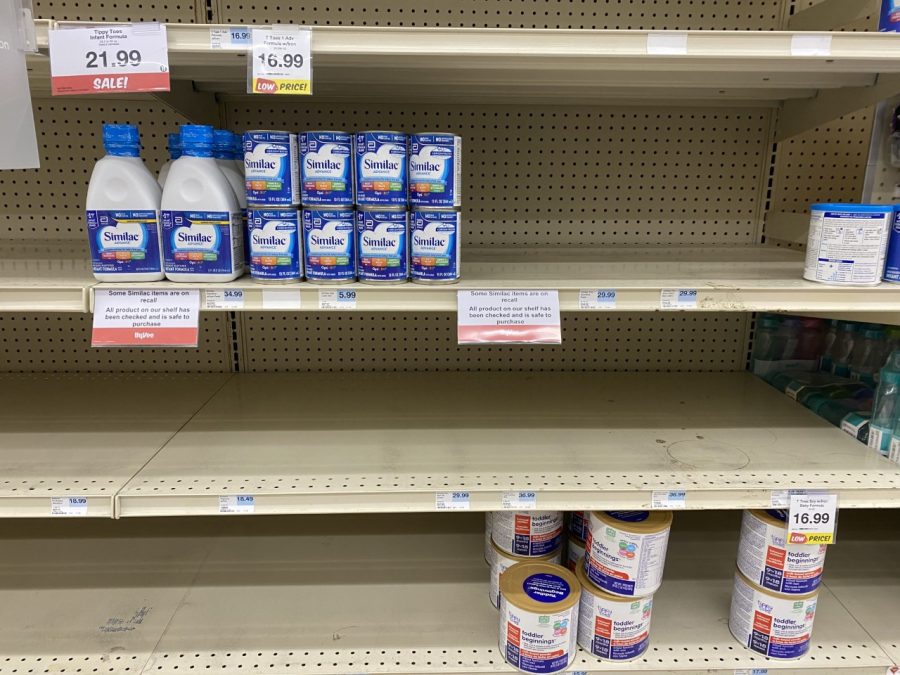The baby formula shortage
Many grocery stores, like this Hyvee, are experiencing a shortage of available baby formula.
May 19, 2022
When new babies are born, feeding them is a priority for families. Whether infants are breastfed or given baby formula, feeding is an important and often time-consuming task for mothers. Millions of people in the U.S. use baby formula as opposed to breast milk for various reasons. The necessity for baby formula can come from a mom or infant’s medical conditions or a baby’s allergies. Formula also provides more convenience and flexibility for mothers. A majority of infants in the U.S. are formula-fed to at least some extent by the age of six months, according to AP news. But what happens when baby formula is impossible to find?
Over the last few months, the shortage of baby formula in stores has gotten worse and worse. Now, empty shelves where formula should be are a common sight in grocery stores. Some parents may travel to several different locations looking for options, only to be met with a few picked-over containers. This shocking trend is a source of worry for parents of young children, especially those whose infants rely solely on formula. Babies need to drink either milk or formula for one year and diluting formula or using homemade recipes are not healthy options. This shortage has been caused by a combination of recalls and supply chain issues made worse by COVID-19.
The majority of the baby formula market is controlled by just a few companies, which makes it easier for supply to be disrupted when one of the companies recalls products. One such company is Abbott Laboratories, a company which makes up 43% of the market according to a 2011 report from the USDA. Abbott recalled several of their products in February, including EleCare, Similac and Alimentum. This recall was due to possible health risks resulting from the plant they were produced at in Michigan. Without these products as an option, families have had to resort to using any other brand of formula they can find. This has put a stress on supplies in stores, making formulas of all brands, including hypoallergenic brands for babies with allergies, hard to find.
Although this situation seems scary, Abbott plans to resume production of formulas soon which will hopefully decrease the shortage. White House press secretary Jen Psaki said that President Biden had “spoken with retailers and manufacturers including the CEOs of Walmart, Target, Reckitt and Gerber to call on them to do more to help families purchase infant formula.” As of now the best options for people seeking formula is to use alternative brands that are available, look online for resources or call a doctor for more help finding formulas.









